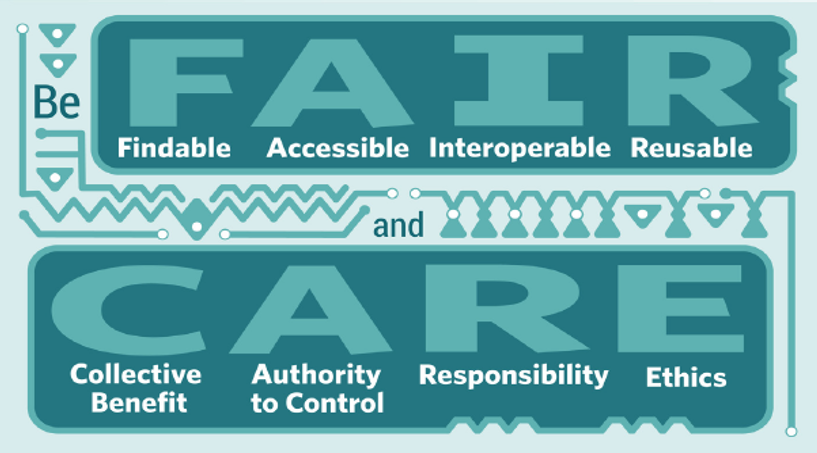1.5 Co-participatory research practices and the CARE principles
Research data form the basis for knowledge production in our fact-based and data-driven culture. Ultimately, the data we produce inform policy decisions, guide resource administration, and support strategic processes.
Researchers in fields that study society and humans must be especially aware that the data produced can influence relations among humans and have an immense effect on groups and communities.
As Open Data, Big Data, machine learning, and data reuse become an integrated part of research practices, it is important to carefully consider the possible impacts that data reuse may have on the populations studied.
In recent years, methodological approaches have shifted towards more co-participatory research practices that seek to mitigate the disadvantageous power relationship between researchers and the research subjects. The perspectives of research participants are relevant at all stages of the research data cycle and increase the quality of studies and the sustainability of outcomes. Empowering participants as co-researchers ensures that the research is ethical and culturally appropriate, and such practices are recommended in many current guidelines on research ethics.
The Global Indigenous Data Alliance (GIDA) is a network of stakeholders advocating for Indigenous Data Sovereignty and Indigenous Data Governance. In 2018 they formed the CARE principles for indigenous data (Carroll et al. 2020).
Indigenous data covers all information collected or generated that relates to Indigenous Peoples and their territories and cultures. It includes the extensive collections of cultural heritage materials held by museums, archives, and libraries, as well as census data, health data, and ecological data.
In studies of other cultures, the researchers, or institutions they represent, often take ownership of the material gathered. The CARE principles aim to strengthen the indigenous self-governance of indigenous data so that indigenous peoples can reclaim control of their data and data narratives. Data sovereignty can change how data is collected and analysed and how access and use is managed. The principles are designed to act within the framework of today’s knowledge economy and support innovation and knowledge growth. Still, they emphasise that new values should be created in accordance with the indigenous people’s worldview.
Like the FAIR data principles, CARE addresses important aspects that relate to modern data ecosystems and are relevant throughout the life cycle of the research data. Whereas the FAIR principles are more data-centric, the CARE principles are purpose- and human-oriented. The aim is that data stewards managing indigenous data should implement both sets of principles and that they should complement each other.
For an example of how the CARE principles can be implemented in data archives, see section 8.6.

Illustration: GIDA: Global Indigenous Data Alliance (https://www.gida-global.org/care)
Reference:
Carroll, S. R., Garba, I., Figueroa-Rodríguez, O. L., Holbrook, J., Lovett, R., Materechera, S., Parsons, M., Raseroka, K., Rodriguez-Lonebear, D., Rowe, R., Sara, R., Walker, J. D., Anderson, J., & Hudson, M. (2020). The CARE Principles for Indigenous Data Governance. Data Science Journal, 19(1). https://doi.org/10.5334/dsj-2020-043